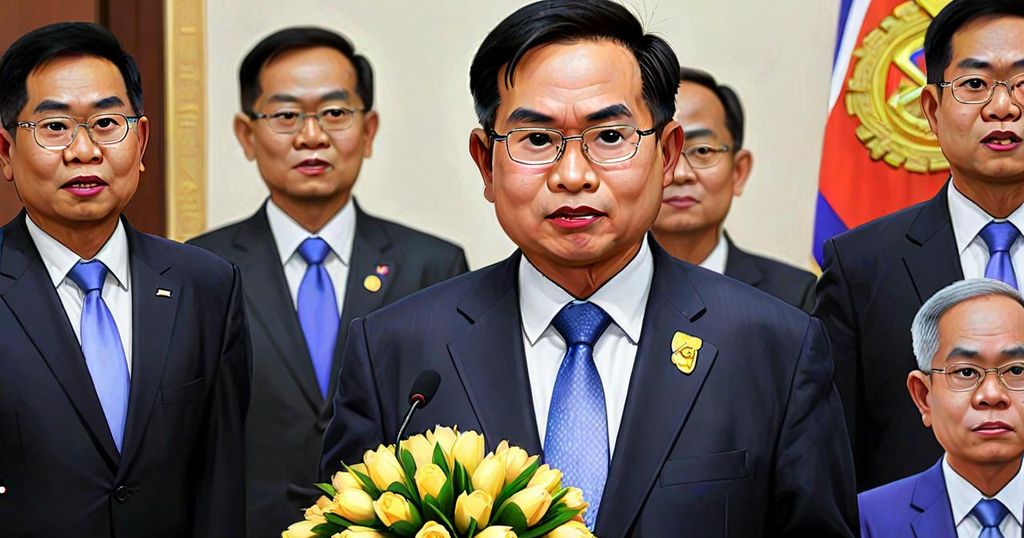The conclusion of political unrest in Thailand has culminated in the appointment of newly elected Prime Minister Srettha Thavisin. This development is projected to instill a brief surge in investor confidence, though analysts caution that the country’s long-term economic revival may encounter significant obstacles.
The Move Forward party emerged triumphant in the general election held in May, yet encountered challenges in securing endorsement from the traditionalist Senate. Subsequently, a period of instability ensued, during which the runner-up Pheu Thai party formed a new coalition government with two military parties and the moderate Bhumjathai Party. Srettha, the leader chosen by Pheu Thai, was officially appointed as prime minister on August 22. This appointment coincided with the return of former prime minister Thaksin Shinawatra to Thailand after 15 years of self-imposed exile. Thaksin’s reemergence is speculated to be part of a power-sharing arrangement, with expectations that he will ultimately receive a royal pardon under Srettha’s tenure.
The repercussions of this political upheaval are mirrored in the stock market, where foreign investors have been net sellers since the May election. Nonetheless, sentiment is gradually improving amid hopes for economic stability under Srettha’s leadership. Despite this, Pimrapaat Dusadeeisariyakul, a project manager at Friedrich Naumann Foundation, asserts that the upsurge in confidence will be temporary and the long-term impacts are yet to unfold.
A major concern for the country is the postponement of the unveiling of the 2024 fiscal budget, now expected at the beginning of 2024 instead of the fiscal year’s onset. Experts have underscored that such budget delays could generate economic uncertainty and impede fiscal policy direction, potentially resulting in reduced government services and elevated borrowing costs.
In a bid to avert a recession, Srettha has articulated the necessity for stimulus in light of the sluggish recovery in tourism and consumer spending. His plans encompass measures to address the country’s escalating debt and foster economic activity through the distribution of digital currency to citizens aged 16 and older. These initiatives, however, have prompted concerns about the potential impact on public debt and fiscal consolidation.
Furthermore, the proposed populist policies of the Pheu Thai party, encompassing cash handouts and augmented welfare spending, have also prompted scrutiny for their potential to escalate fiscal risks. Fitch Ratings has cautioned that the implementation of these measures could exert pressure on the country’s debt-to-GDP ratio and adversely affect its sovereign rating.
Amidst these economic challenges, the new government is also expected to address calls for reforms in the military and monarchy. Analysts foresee some strides in military reforms to assuage public sentiment, particularly in response to demands for change following the May election. It is believed that these reforms may sustain public support and demonstrate the government’s dedication to addressing pressing issues.
As the country navigates through this period of transition, it is imperative to acknowledge the complexities and obstacles that lie ahead. The decisions and policies of the new government will be pivotal in shaping Thailand’s economic future.

Leave a Reply